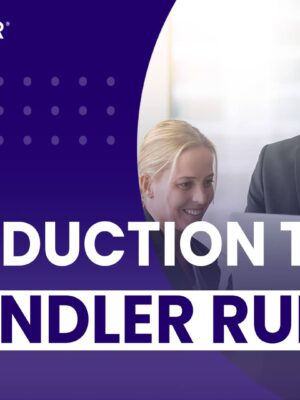4 Tips for Building Rapport with Customers

Customer relationships are the lifeblood of any sellers’ career. The ability to attract clients, build rapport, and start sales conversations ultimately determines the level of success that a salesperson will enjoy. You can be an extreme specialist who knows all the tricks of the trade, but without supplementing your knowledge with interpersonal communication skills, you’ll fail to connect with your clients or prospects on a deeper level. Building rapport is essential to turn yourself from a transactional seller into a trusted partner. Below I’ve outlined four ways to strengthen your bond with clients.
1. Understand yourself, your communication style, and the value that you provide.
At first glance, this may seem counterintuitive to the idea of strengthening your relationship with clients. Forming an understanding of yourself is an internal activity. However, before we can formulate a plan to interact with others, we must first uncover how we approach them. Many times, we make the mistake of treating other people the way we want to be treated, but each person is different and prefers different types and methods of communication. Analyze your communication style and ask yourself how you can adapt that style to better fit each individual prospect.
Also, before you can convince a client of your worth, you must be sure of it yourself. Thoroughly charting what you bring to the table, including your value, sales process, questions, and expected results will allow you to identify how you can start the conversation. From there, we can begin to understand why the prospect is meeting with us. The person who first asks the question, “Why are we here?” will be in control of the sales process. Make sure you ask yourself and the prospect that question as quickly as possible.
2. Create an atmosphere of equal business stature.
It’s not uncommon for salespeople to feel like a burden to their potential buyers. The best way to ease that fear is realizing that you are a highly-paid professional, who gets paid to qualify and disqualify prospects. Think of yourself as a sales doctor whose job it is to determine if the prospect’s problems, budget, and decision-making process fit well with your offering. Your job is to create an environment where the prospect feels comfortable and trusts you enough to share honest answers to those questions. You are there to interview them and make a professional determination as to whether your solution will fix their problem within the budget and timeline they require.
There’s a fine line between authoritative and aggressive, so you want to make sure that you come across as the former. This best way to do this is by asking intelligent questions, which allow your prospect to feel that they’re in control – even if you’re the one leading the conversation. When you have a good relationship with your clients, a sale shouldn’t be a high-pressure situation. Instead, you should make recommendations that your clients will act upon if they see that it truly is in their best interest.
3. Be honest and transparent.
Another step towards reducing the pressure of making a purchase decision involves dealing with the prospect’s emotions and fears. Being honest and open with your clients allows them to be more at ease around you, which means they’ll be more prone to letting their guard down. You build trust and transparency by being disarmingly honest yourself first.
To establish this sense of transparency, let them know that you’re not the right choice for every potential buyer and that you only like to work with the ones whose needs you can address. This strategy does two things simultaneously; it allows your client to see you as vulnerable, which builds their confidence, and it encourages them to share their needs with you. This early qualification statement shows your desire to be honest, and it strengthens the relationship.
4. Remain present.
The quickest way to turn off a prospect is to appear to be acting only in your own self-interest. When dealing with prospects, this usually means moving to the close of the sale too quickly. For existing clients, it might be only interacting with your clients when you want them to make a purchase. Either way, this mistake will deteriorate your relationships quickly and greatly reduce your chances of earning repeat-business. To combat this negative trend, invest yourself in your client’s interests. Learn the ins and outs of their challenges and determine how you can be of service and a valued partner outside of just selling to them.
The more ways that you can separate yourself from the stereotypical sales process and allow your clients to see you in a helpful and mutually beneficial role, the better chance you’ll have to build rapport and grow your relationship.
Today’s sellers need to be more attentive to their clients’ needs than ever, and the stronger their bonds are, the more likely they are to be of service. It’s not an easy task, but knowing your worth, creating equal business stature, being transparent, and remaining present, allows you to build rapport with your clients and establish yourself as a trusted advisor.
To learn more about building client relationships, head over to this section of our blog.








